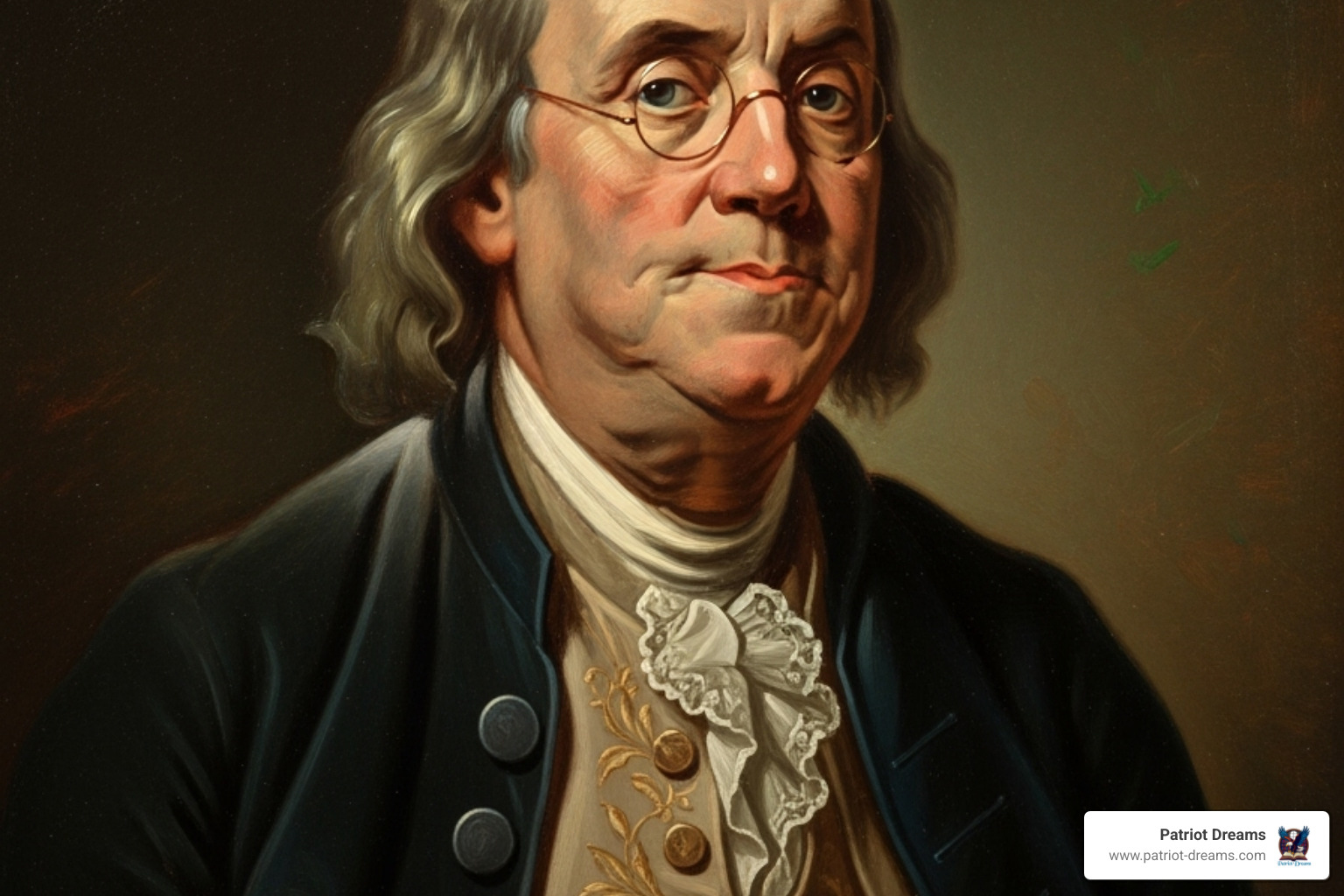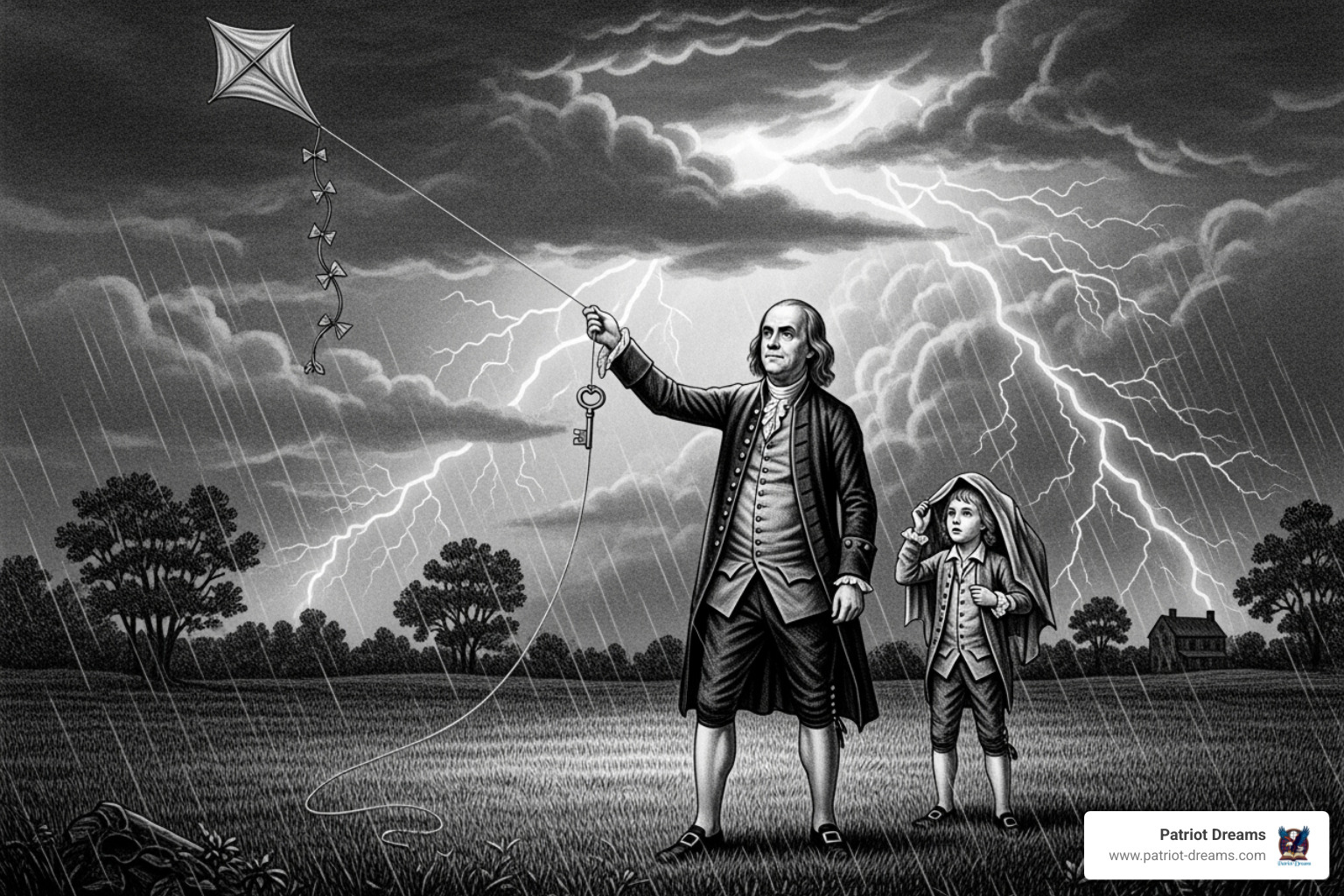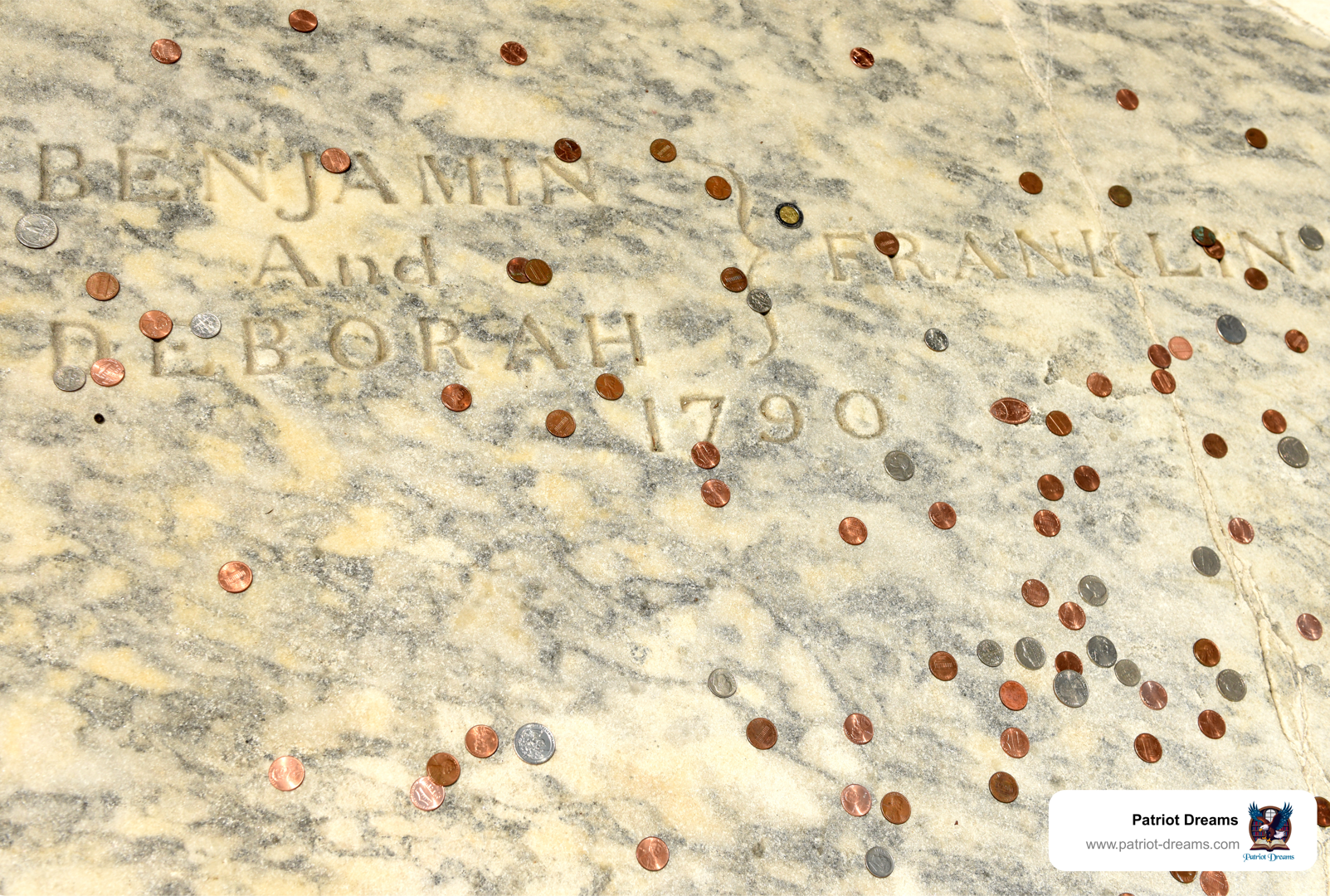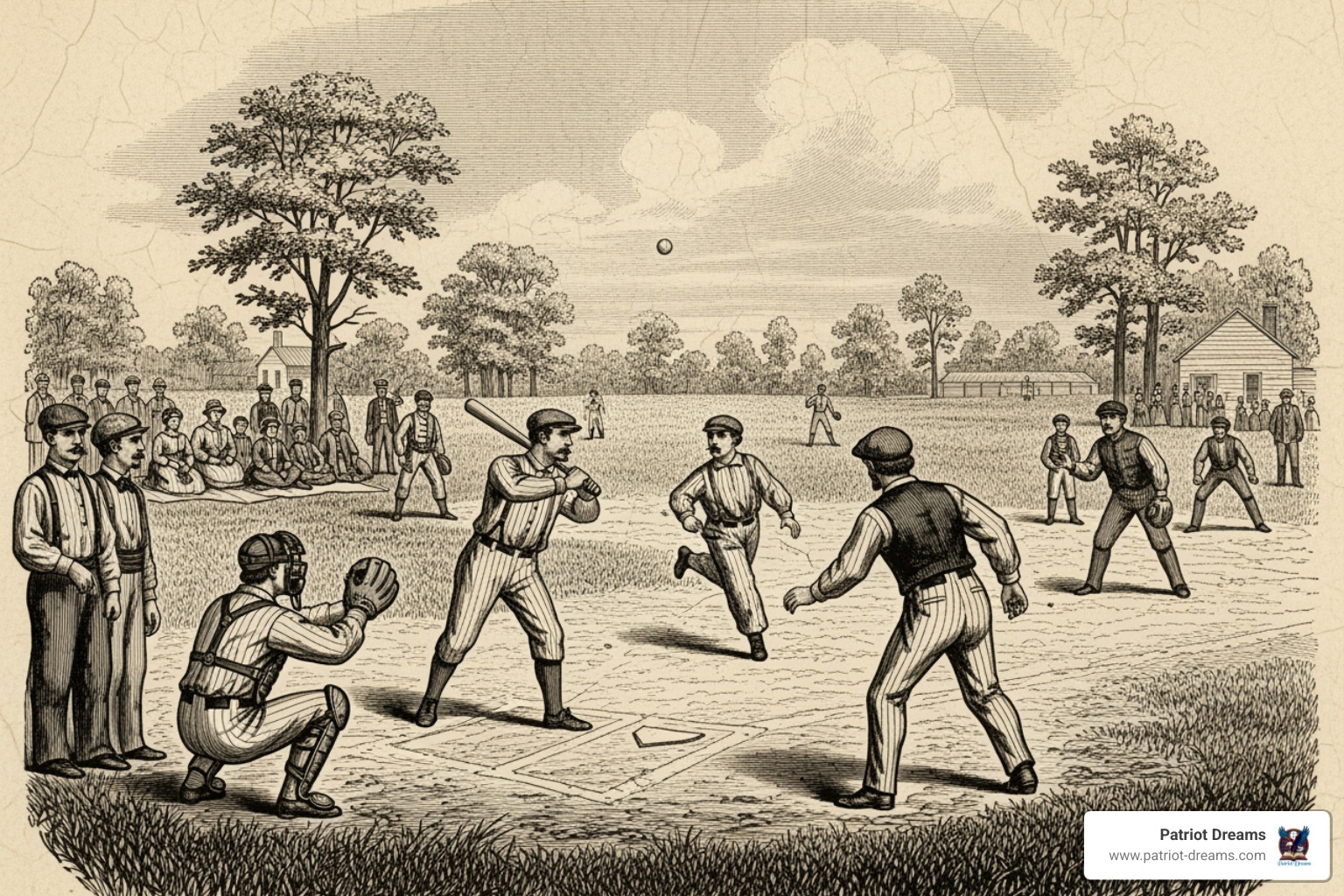Benjamin Franklin: Inventor, Diplomat, and Founding Father


The First American: A Life of Innovation and Service
All About Benjamin Franklin: Inventor, Diplomat, and Founding Father reveals the story of America's most versatile founding father—a man who rose from humble beginnings to become one of history's greatest polymaths.
Quick Overview: Benjamin Franklin's Key Roles
- Inventor: Lightning rod, bifocals, Franklin stove, glass armonica
- Diplomat: Secured crucial French alliance during Revolutionary War
- Founding Father: Only person to sign Declaration of Independence, Treaty of Paris, and Constitution
- Scientist: Proved lightning was electricity, mapped Gulf Stream
- Civic Leader: Founded first public library, fire department, and hospital in America
- Publisher: Created Poor Richard's Almanack and Pennsylvania Gazette
What made Franklin truly remarkable wasn't just his genius—it was his practical approach to improving life for everyone. Whether he was inventing the lightning rod to protect buildings from fire or negotiating with French nobles to secure military aid, Franklin always focused on real solutions to real problems.
As John Adams once noted with grudging admiration, Franklin had "electrified" both the scientific world and the cause of American independence. His story shows us how one person's curiosity, determination, and civic spirit can literally help build a nation.

From Humble Beginnings to Prominent Philadelphian
Benjamin Franklin's early life laid the groundwork for his extraordinary future. Born in Boston in 1706, he was the tenth son of a soap maker, and his formal schooling ended at age 10. At 12, he was apprenticed to his brother James, a printer. This contentious but formative experience was where Franklin honed his writing skills, secretly publishing witty essays under the pseudonym "Silence Dogood." He dedicated himself to self-improvement through tireless reading, a habit that fueled his advancement.
Seeking independence, he ran away to Philadelphia at 17, arriving in 1723 with little to his name. After a formative 18-month trip to London where he worked as a typesetter, he returned to Philadelphia in 1726 to build his future. In Philadelphia, Franklin flourished as a printer and publisher. He acquired The Pennsylvania Gazette and, from 1733 to 1758, published the wildly successful Poor Richard's Almanack. Filled with practical advice and witty sayings, the almanac made him a household name and allowed him to retire from business at 42 to dedicate his life to public service, science, and politics.
Franklin's impact on Philadelphia's civic life was profound. Believing in communal improvement, he founded institutions that became cornerstones of American society. His discussion group, the Junto, led to the creation of America's first subscription library and volunteer fire company. He also helped establish the first fire insurance company, Pennsylvania Hospital, and the Academy of Philadelphia, which became the University of Pennsylvania. His efforts also included paving city streets and improving the colonial postal system.
The Self-Made Man: Virtues and Beliefs
Franklin's journey was guided by a philosophy of self-improvement, detailed in his famous Autobiography. He created a system of "Thirteen Virtues"—including temperance, industry, and humility—as a path to moral perfection, establishing the model for the American "self-made man." His religious views evolved into a form of Deism, and he advocated for religious tolerance. His personal life was equally pragmatic. He entered a common-law marriage with Deborah Read, with whom he had two children. He also had an illegitimate son, William Franklin, whose loyalty to the British during the Revolution caused a painful and permanent rift with his father.
The Ingenious Inventor and Scientist
When we think about Benjamin Franklin, it's his scientific mind that truly sets him apart from other colonial figures. Franklin wasn't content to simply observe the world around him—he wanted to understand it, experiment with it, and make it better for everyone.

In the 1740s, Franklin became fascinated with electricity. While many feared it, he saw a puzzle to be solved. His experiments led him to find that positive and negative charges exist in equal amounts, a principle now known as the law of conservation of charge.
His most famous experiment came in 1752, when he conducted his legendary kite and key experiment during a thunderstorm. Taking careful precautions, he proved his theory that lightning was simply electricity on a massive scale. This groundbreaking finding earned him the Royal Society's Copley Medal in 1753, the era's equivalent of a Nobel Prize. The philosopher Immanuel Kant dubbed him "The Prometheus of Modern Times."
Franklin's scientific mind focused on solving real problems. His lightning rod protected buildings from fire. Tired of switching glasses, he invented bifocals. To heat rooms more efficiently, he created the Franklin stove. He also designed a flexible urinary catheter for his brother and invented the glass armonica, a musical instrument for which Mozart and Beethoven composed. Crucially, Franklin refused to patent any of his inventions, believing they should be shared freely to benefit all of humanity.
His curiosity was boundless. He mapped the Gulf Stream to improve shipping, advanced the field of meteorology, and studied demographics. At 77, he witnessed the first hot air balloon flights in Paris. When a skeptic asked about their use, Franklin famously retorted, "What good is a newborn baby?"
Franklin's scientific achievements brought him international recognition long before the American Revolution. In America, he worked to foster scientific inquiry as a leader of the American Philosophical Society, which he helped found. What set Franklin apart was his practical approach to science, always focusing on how his findings could provide public benefit. This combination of a brilliant mind and a generous public spirit made him unique among the Founding Fathers. His legacy reminds us that the best science isn't just about understanding the world—it's about improving it.
The Quintessential Statesman and Founding Father
Benjamin Franklin's political journey began in the Pennsylvania Assembly in 1751, but his influence soon expanded as he revolutionized the colonial postal system. As postmaster of Philadelphia and later Deputy Postmaster General for the colonies, he made remarkable improvements, such as halving key delivery times. He became the first U.S. Postmaster General in 1775.
His vision for unity emerged early with the 1754 Albany Plan of Union, a groundbreaking proposal to unify the colonies under one government—a blueprint for the future United States.
From 1757 to 1775, Franklin served as a colonial representative in London. He initially sought reconciliation, successfully arguing against the Stamp Act in 1766. As tensions grew, he used his sharp wit to write satirical essays that mocked British policies and swayed public opinion toward independence.
In 1776, Congress sent Franklin to France on a critical mission: to secure French support for the Revolution. His celebrity as a scientist made him a sensation in Paris, and he masterfully leveraged this fame for serious diplomacy.

In 1778, he secured the Franco-American Alliance, a treaty that brought crucial French military and financial support to the American cause. Many historians agree that without this alliance, the Revolution might have failed. He then helped negotiate the 1783 Treaty of Paris, which officially ended the war and recognized American independence. He returned home in 1785 after nearly three decades of service abroad.
With other Founders, Franklin had complex relationships. He deeply respected George Washington but had a more difficult rapport with John Adams. He famously collaborated with Thomas Jefferson on the Declaration of Independence, suggesting the change from "sacred and undeniable" truths to the more powerful phrase "self-evident."
A Signer of America's Foundational Documents
Here's what makes Benjamin Franklin truly unique in American history: he was the only person to sign all four of America's key founding documents: the Declaration of Independence, the Treaty of Alliance with France, the Treaty of Paris, and the U.S. Constitution.
At age 81, he served as a delegate to the 1787 Constitutional Convention. As the elder statesman, his wisdom and humor were instrumental in achieving the compromises needed to create the Constitution. At its conclusion, he delivered his famous "rising sun" speech, looking at the sun carved on George Washington's chair and declaring that it was, like the new nation, a rising one. His diplomatic skill won the war, and his steady hand helped build the nation.
Franklin's Evolving Stance on Slavery and Lasting Legacy
Benjamin Franklin's stance on slavery reveals his capacity for moral growth. Like many wealthy colonists, he owned enslaved people in his earlier years. However, his views evolved dramatically over his life. He began advocating for the education of Black individuals, arguing that lack of opportunity, not ability, caused differences in achievement. By the 1780s, he had become a prominent abolitionist. In 1787, he became president of the Pennsylvania Abolition Society. In 1790, just months before his death, Franklin made one of his final public acts: he petitioned Congress to abolish slavery, a culmination of decades of moral reflection.

Many fascinating, lesser-known facts add to his legend. He was an avid swimmer who was posthumously inducted into the International Swimming Hall of Fame. As an early political cartoonist, he created the famous "Join, or Die" cartoon, a powerful symbol of colonial unity. A tree, the Franklinia alatamaha, also bears his name. Franklin died on April 17, 1790, at age 84, reportedly saying, "A dying man can do nothing easy."
Benjamin Franklin's Enduring Influence
Benjamin Franklin's influence remains powerful today. His face is on the $100 bill, and countless cities and universities bear his name. His funeral drew an estimated 20,000 mourners, and his will established a 200-year trust that funded schools and museums. His Autobiography remains a classic American success story, and his only surviving home, 36 Craven Street in London, is now a museum. Franklin embodies American ingenuity, diplomacy, and patriotism. His journey from a printer's apprentice to a world-renowned polymath proves that curiosity, public service, and moral growth can change the world.
Frequently Asked Questions about Benjamin Franklin
What were Benjamin Franklin's three most important roles?
While Franklin was a true polymath, his three most significant roles were inventor, diplomat, and Founding Father.
- As an inventor, he created practical items like the lightning rod, bifocals, and the Franklin stove, refusing to patent them so they could benefit everyone.
- As a diplomat, he was essential to winning the Revolutionary War. He secured the Franco-American Alliance in 1778, which provided the money, troops, and naval power needed to defeat Britain.
- As a Founding Father, he is the only person to have signed all four key documents of American independence: the Declaration of Independence, the Treaty of Alliance with France, the Treaty of Paris, and the U.S. Constitution. His wisdom as an elder statesman was vital at the Constitutional Convention.
Did Benjamin Franklin really fly a kite in a thunderstorm?
Yes, his famous kite experiment in 1752 was real. By flying a kite with a metal key attached during a thunderstorm, he proved that lightning was a form of electricity. This dangerous but groundbreaking experiment led directly to his invention of the lightning rod, which protects buildings from lightning strikes. The finding earned him international scientific acclaim, including the prestigious Copley Medal from London's Royal Society.
Was Benjamin Franklin a president of the United States?
No, Benjamin Franklin was never President. By the time George Washington was inaugurated in 1789, Franklin was 83 years old and in poor health. However, he did serve as the President of Pennsylvania (a role similar to a governor) from 1785 to 1788. His most important late-life role was as a revered elder statesman at the Constitutional Convention, where his wisdom and calls for compromise were crucial to the creation of the U.S. Constitution.
Conclusion: The Indispensable American
When we look back at the extraordinary life of Benjamin Franklin, it's impossible not to be amazed by how much one person accomplished. Benjamin Franklin rose from a printer's apprentice to a world-famous figure, helping to create the American Dream through his own journey.
What made Franklin special was his practical approach to improving life. Whether inventing the lightning rod or securing foreign aid, he focused on real solutions for real people. His commitment to self-improvement and civic virtue—founding libraries, hospitals, and schools—showed that success comes with a responsibility to one's community. His pragmatism became a cornerstone of the American character.
Franklin embodied classic American values: curiosity, determination, and a generous spirit. He proved that what mattered was not where you started, but what you did with your life.
Today, more than 230 years after his death, Franklin remains a symbol of ingenuity, diplomacy, and patriotism. His face on the $100 bill, the countless places named for him, and his enduring autobiography all speak to his legacy. His story is a powerful reminder that one person's dedication to serving others can shape history. The man who tamed lightning and helped found a nation will always be remembered as one of America's most indispensable figures.
Find stories about America's founding figures on Patriot Dreams
Join the Patriot Dreams Community
Download the app today and start your journey through American history and personal legacy.

Explore Our Latest Insights
Dive into stories that shape our American legacy.



